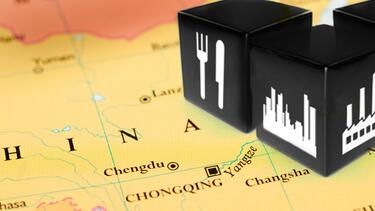Management in Practice
Where do small NGOs fit on the global development stage?
Development organizations find themselves in fierce competition for funding. How can small nonprofits differentiate themselves so their capabilities aren't overlooked among the giants? We talked with one expert who has been delivering global health to underserved populations for decades.
Where’s the investment opportunity in China?
Liang Meng, who founded a private equity firm after leading D.E. Shaw’s China operations, gives an overview of the fast-developing private equity market in China. He describes how demographic trends inform his investment strategy.

Can diplomacy benefit business?
The days of U.S. boycotts of South Africa are long gone. The country is an economic powerhouse in Africa and a key economic partner for the U.S. In four years as U.S. ambassador to South Africa, Donald Gips ’89 worked to increase investment and trade flows between the countries.
Can I charge that?
More and more, the answer is yes, as the credit card industry reaches billions of consumers and tens of millions of outlets. The CMO of MasterCard WorldWide talks about the company’s efforts to compete in this global market while responding to radically different technological infrastructures, legal institutions, and cultural understandings of debt.
How does mobile change the marketing equation?
The omnipresent smartphone has the potential to change the entire shopping experience.
Can educational success scale?
Efforts to improve the U.S. educational system come from all directions, ranging from the president’s Race to the Top program to PTO bake sales. But debate rages about what efforts are genuinely effective. We talked with an expert with first-hand experience building successful schools for one perspective.
How does a global corporation keep innovating?
Honeywell International has 132,000 employees around the world and dozens of businesses in the aerospace, energy, consumer products, construction, automotive, healthcare, and other industries. How does an organization on that scale stay nimble enough to recognize opportunities and take advantage of them? CEO Dave Cote discusses the company's strategy and his own role.
How does Colombia see globalization?
The former president of Colombia argues that dealing with globalization is an imperative for all countries. He describes how he tried to build relationships with other nations when he was head of state, with an eye toward working together to solve major problems—such as narco-trafficking, terrorism, and resource constraints—that cross borders.
How do businesses reach across the globe?
Any large organization has multiple stakeholders with different needs. And a truly global business has to deal with tremendous variation in cultural and regulatory contexts. For example, in the U.S., per capita credit card penetration is 2.5—meaning there are more than 2 credit cards for each person in the country. In Saudi Arabia, where Islam forbids the use of credit, the penetration rate is .04. How can a company cope with exponentially increasing complexity as it moves to more and more markets? And are there some businesses that don't translate easily—or at all—across borders?
Can renewable energy compete?
The cost to produce energy from renewable sources, such as wind and solar, has fallen dramatically in recent decades, but so has the cost of natural gas. Daniel Gross, a renewable energy investor, discusses what it will take to make wind and solar cost-competitive.